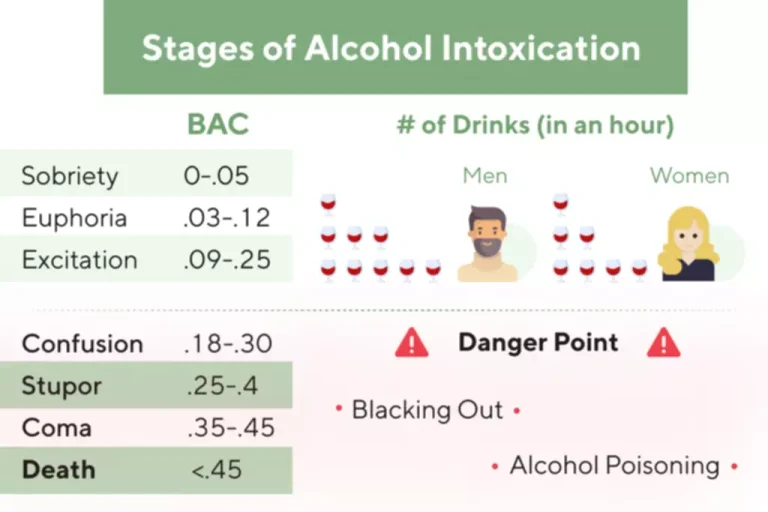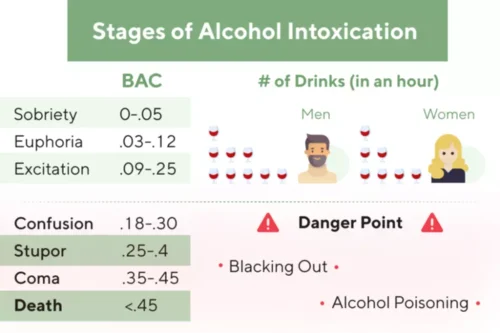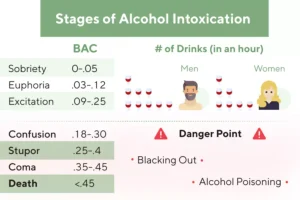Substance Abuse in the Elderly: 2024 Statistics & Data

It describes how substance use disorder treatment providers can use these approaches and strategies to increase participation and retention in substance use disorder treatment. It is also important to note the difference between pharmacologic preparations of cannabis and medicinal cannabis. Pharmacologic preparations are approved by the Food and Drug Administration (FDA) for specific indications such as seizures or anorexia 34. The FDA currently has approved one cannabis-derived and three cannabis-related drug products; these include cannabidiol, nabilone, and two brands of dronabinol 34.

Consumer Resources
- As a result, a given amount of alcohol results in a higher blood alcohol level in older adults and ultimately puts older adults at risk for intoxication and harm at a lower intake of alcohol 16.
- Early intervention strategies such as cognitive-behavioral therapy or family counseling may be beneficial for preventing substance abuse issues among those at high risk for developing them.
- It’s been called the “invisible epidemic.” But knowing what to look out for can help you protect yourself or a loved one.
- Studies have shown virtual outpatient care for the treatment of SUD to be a feasible alternative to in-person-only programming 79.
With express consent from clients, ask supportive family members for suggestions on activities. The consensus panel recommends that you explore all of these dimensions of wellness as a way to help older adults sustain their recovery from substance misuse. The consensus panel recommends the following interventions to promote social support for older adults who misuse substances. Also, there is a need to improve the integration of mental health and general health services. This would lead to more person-centered care and decrease the need for multiple appointments, which can be particularly challenging for older adults. Collaborative models of care can achieve this goal either in-person or with the use of digital technologies (Ramuji et al., 2019).
Substance Use Disorders in Older Adults: Overview and Future Directions
This article will discuss addiction among seniors, health risks, and treatment options. Wellness recovery activities keep your older clients engaged in all aspects of life, health, and well-being. Brainstorm ideas together and link your clients to a wide range of https://ecosoberhouse.com/ wellness activities, like exercising, joining a spiritual or religious fellowship, creating a safe and welcoming living environment, enrolling in adult education or senior college courses, and volunteering. Older adults are at risk for opioid addiction, given the high prevalence of chronic pain in this population. Opioid overdose prevention strategies, detoxification, and medication can be used safely and effectively with this population.

Office of Addiction Services and Supports
The Coalition also recommends that Medicare and Medicaid financing mechanisms should be restructured to support the integration of behavioral health and primary care for aging Americans and to support interdisciplinary care coordination and treatment teams. Collaborating with your clients to develop a SMART plan (Exhibit 7.4) for achieving the identified substance misuse or wellness goal; the plan should specify a timeframe and any supports clients need to meet the goal. Also, some individuals find treatment facility alumni programs helpful in supporting their recovery from SUDs. Alumni programs typically offer graduates of the same treatment facility ongoing support through organized activities, continued contact with treatment staff, and further addiction education. Active linkage to and follow-up with community-based resources, such as housing and employment services (when needed); senior centers; and fitness, health, and wellness services for older adults. Supports clients in their efforts to sustain self-management of symptoms while actively participating in recovery and wellness activities.

Alcohol and Older People

The Coalition recommends that primary care doctors and specialist receive financial incentives for participation in the PCMH. Health, behavioral health service, social service, and peer recovery support providers may be part of the support network clients identify. This section reviews the eight dimensions of wellness and how to explore wellness from a client-centered perspective.

Illicit Drug Use
Older adults in recovery from substance misuse who have chronic medical conditions may feel ashamed of having an illness that limits their functioning and ability to engage in recovery activities. The following scenario focuses on an older adult’s negative self-judgments about having a chronic medical condition. Finally, a third important direction will be to ensure increased attention to social determinants of health (Blanco et al., 2020). Gender and racial inequities and stigma increase the risk of SUD at all ages and can act as a powerful barrier to treatment. Lack of social support, which often increases with what is the best treatment for substance abuse for older adults age, can increase the risk for and worsen the course of, SUD. Housing, the built environment and other neighborhood characteristics also can be powerful determinants of substance use and access to treatment.
- Retention in ongoing treatment and recovery support, including mutual-help group meetings.
- The consensus panel recommends that you explore all of these dimensions of wellness as a way to help older adults sustain their recovery from substance misuse.
Why including caregivers is essential for successfully treating older adults with substance misuse and co-occurring dementia or MCI. Additionally, your role is to help ensure caregivers have the support and resources they need to maintain their own health and well-being (including avoiding substance misuse themselves). The ways to respond appropriately to older clients who screen positively for alcohol misuse or alcohol-related problems.
